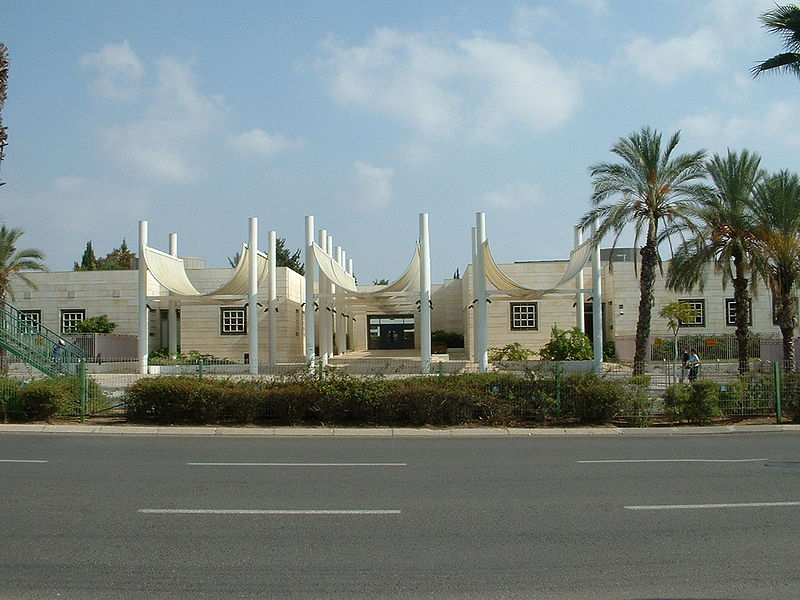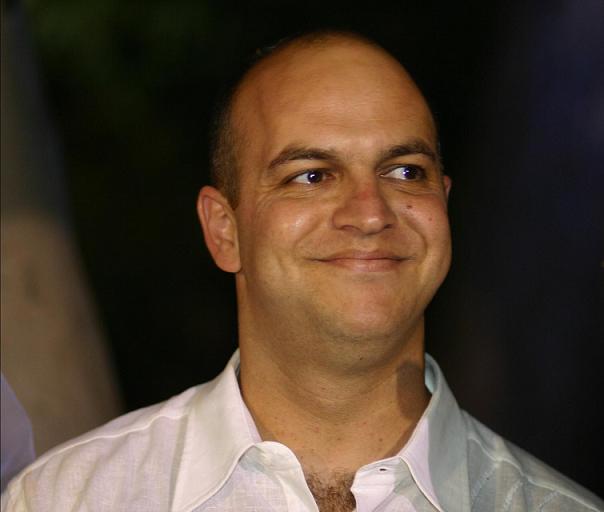The academic colleges, which enable the expansion of higher education, and actually compete with universities, are only part of the picture, which also includes engineering schools and professional colleges. This is what Shahar Shabu, who has been involved in education for 15 years, and co-director of College Portal, a website that centers all study tracks in Israel at all educational institutions

Says Shahar Shabu, co-director atCollege portal, which details for the scientist website the state of the higher education system in the intermediate fields. where he has also been a teacher himself for about 15 years in a high school in Haifa and in colleges.
The academic colleges have become a substitute for universities whose budgets are constantly being cut, and they do not have the capacity to absorb too many students. This can be learned from the data published by the Planning and Budgeting Committee of the Council for Higher Education towards the beginning of the 2009 school year in October XNUMX.
"Different from the trends that characterized the numbers of bachelor's and master's degree students in universities in recent years, the number of bachelor's degree students in academic colleges continued to increase at a very fast pace. The growth rate in the period 50-51,100 exceeded 77,260% - from approximately 6,100 students in 8.6 to approximately 1,700 in 7,260. Only in the last year the number of students in the academic colleges increased by about XNUMX, an increase of XNUMX%. The number of those studying for a master's degree in the academic colleges also increased by about XNUMX in the last year, reaching XNUMX students in XNUMX.
The increased demand for bachelor's degree studies and its referral to the academic colleges led to significant changes in the structure of the system. In the early 90s, about 85% of bachelor's degree students still studied at the main campuses of the universities and only 6.4% studied at the academic colleges. Over the past two decades, the proportion of students studying for a bachelor's degree in academic colleges has gradually increased, and in 50, more than 40% of students studied for a bachelor's degree in academic colleges (including university-sponsored academic tracks). At the same time, the share of those studying in the main campuses of the universities dropped to about XNUMX%.
But not everyone is able to study at a university or even an academic college. One of the possible alternatives, according to Shabu, is engineering schools. The population applying for these studies is divided into two: those who first come to study a profession for a year if it is a technician or two to two and a half years for an engineer (precisely in such a period of recession not everyone is able to spend four years studying a profession), and there is also a population of those who are unable to be accepted for academic studies and decide "compromise" on technological studies.
The admission conditions for engineer and technician studies are much more favorable. The main difference is that a psychometric test is not required. Even if something is missing, such as certain matriculation grades, you can always study in preparatory schools whose grades replace part of the matriculation grades. In addition to the easier admission conditions, many scholarships are also offered, which are also given by the Ministry of Education, among others. Some subjects are actually provided with almost full funding beyond the deposit.
Today you can study for an engineering degree in almost anything, starting with architectural engineer, interior design engineer, industrial design, photography, sound. And up to the fields that are completely scientific technologists - electricity and electronics, biotechnology, industry and management of instrumentation and control, machines. You can see that many times the tracks of the engineers overlap with engineering tracks.
For which professions are engineers and technicians required?

Even engineers after graduation have the option to complete a bachelor's degree in engineering. There are engineering schools in collaboration with engineering colleges - allowing a shortened track - completion of three years, varies if you go to the same field or not. A route that is relatively short. It allows people to go see if it suits them, go work for a few years and then complete.
Another advantage - flexibility in the nature of the studies. Many technological colleges allow evening studies, a more flexible route than in full academic studies. There are many technological colleges and you can study anywhere in Israel from Tel Hai College to Beer Sheva and there is also a branch of the College of Administration in Eilat. In which he mentions the College of Administration and Ort, which have the same number of students as a medium-sized university, and which are spread all over the country. There are also academic colleges within a branch of engineering schools such as Kinneret in the Jordan Valley, Sapir College, Tel Hai, Afka and Ariel.
academic colleges
If we return to the academic engineering colleges, where we started, it turns out that there are about a dozen of them in Israel, some of them dedicated engineering colleges: Afka, Ort Brauda in Karmiel, the Jerusalem Academic College of Engineering, Sami Shimon. To which you can also associate Shenkar College and engineering tracks at Netanya College (software) or Ramat Gan College (industrial and management engineering).
"Most engineering colleges are colleges of a high academic level. It used to be customary for those who could go to university, today close to 70% go to colleges. The demand for engineering is still very high even after the bursting of various hi-tech bubbles. In addition to technology, there is also a demand for law and business administration. Many new colleges that open today are for law and business administration and not for engineering, this means that the demand for these subjects is greater or that it is easier to teach these subjects than engineering and science." says Shabu, who appreciates that we have reached a kind of saturation.
The degree in the engineering colleges lasts about four years, and the degrees are divided between BSC and BTEC although most colleges award a BSC degree. The desired tracks are industrial and management engineering, computer and software engineering, information systems followed by electricity and electronics, biotechnology, and then machinery, chemical engineering, medical engineering, materials, plastics."
"The specific computer science degree is a kind of hybrid creature, in most cases it is a BA degree for which the studies last three years, but it is considered a scientific degree for everything and those who graduate from it are not engineers but are able to work in tangential fields such as programming, working with hardware, overlapping salaries."
In conclusion, Shabu says that we need this diversity because not all human beings are born equal. "The process whereby many people want to study for an academic degree is ultimately a welcome process, but not every graduate of these degrees will be awarded a career and money. There are many bachelor's degree graduates even in sought-after professions who complete a bachelor's degree and do nothing with it, and there are people who flourished even after studying only as an engineer or only as a technician. It depends on the graduate himself." summarizes it.

One response
A very interesting article and the data in it are thought-provoking regarding the "privatization" of university education and its accessibility